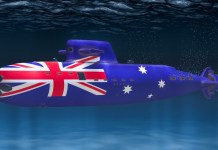Vietnam has defied the Chinese finishing ban in the South China Sea (SCS), outraging Beijing. The Government of Vietnam is instead actively encouraging its fisherman to operate the contentious South China Sea which many experts claim that Hanoi is emboldened with support from the US, ASEAN Nations and India.
Responding to the Chinese fishing ban, the Ministry of Agriculture and Rural Development of Vietnam said the waters are part of Vietnamese sea territory and the ban was invalid. It also said that fishing vessels with a valid license until the end of 2020 can fish in the Tonkin Gulf common fishing area. However, it warned fishermen to avoid areas east of the Tonkin Gulf delimitation line.
Le Thi Thu Hang, Foreign Ministry spokeswoman, said that Vietnam has a complete legal basis and historical evidence to assert its sovereignty over the Paracel and Spratly Islands, as well as its legal rights over its waters in accordance with the United Nations Convention on the Law of the Sea.
Beijing has prohibited fishing in the South China Sea in a bid to conserve decimated stocks. The ban prohibits fishing activities in the waters above the 12th parallel, including areas near the Scarborough Shoal, the Paracel Islands, and the Gulf of Tonkin.
The ban will run from May 1 to August 16 with China’s coast guard promising to take the “strictest measures” to stop any “illegal fishing activities.
The decision from the Chinese government has drawn the ire of neighbouring ASEAN countries including Vietnam, who believe that the ban is a clever ploy by China to tighten its grip over the maritime region.
Support from the International Community?
Experts speaking to EurAsian Times believe that Vietnam’s defiance is based on the support of the international community. By standing up to China, Vietnam is internationalizing the SCS dispute further and is confident that the US, EU and ASEAN countries would firmly back Hanoi.
The US has made its stand very clear on the South China Sea and is actively challenging provocative moves made by Beijing in the maritime area. China is using distraction caused by the global pandemic to further its regional interests in the SCS. In response, The US has carried out ‘freedom of navigation’ exercises and aerial sorties in the region.
Vietnam got a massive confidence boost from the Philippines, another claimant to the South China Sea, as latter supported Vietnam in the aftermath of an incident in which a Chinese coast guard sunk a Vietnamese shipping vessel. China’s actions have had a positive effect on ASEAN members as it has united the member countries’ response.
Experts talking to EurAsian Times believe that Hanoi also has firm backing from India. India-Vietnam defence ties have substantially grown in recent years with New Delhi emerging as a key ally of the South-East Asian country.
India also has strong economical interests in the area with ONGC Videsh engaged in oil and gas production with Vietnam.
Vietnam would not be incorrect to rely on Indian support in case tensions with China escalate. India came to Vietnam’s defence as China and Vietnam engaged in a standoff near the ONGC project in 2019. New Delhi was quick to remind China that it stands for the freedom of navigation and overflight, and unimpeded lawful commerce in the international waters in accordance with international law.
China Slams Vietnam’s Decision
The Chinese Foreign Ministry was quick to slam Vietnam’s protest of the ban. It said that Xisha Islands are an indisputable part of the Chinese territory and that Hanoi neither has the right to contest China’s fishing ban nor encourage its fishermen to operate in the area.
The Ministry also labelled Vietnam’s claim over the disputed regions as illegal and invalid and reiterated that Xisha and Nansha islands are within China’s territory.
Zhao Lijian, Ministry spokesperson further added that Vietnam’s claims violate international laws including the Charter of the United Nations and the United Nations Convention on the Law of the Sea.
Tensions between China and Vietnam have been on the rise since provocative Chinese activity in the contested maritime region. Vietnam holds China responsible for threatening peace and stability in the region by actively engaging in bullying tactics and flexing military might.
The South China Sea is a key commercial sea passage connecting Asia with Europe and Africa, and its seabed is rich with natural resources such as oil and gas. A third of global shipping, or a total of US$3.37 trillion of international trade, passes through the waterbody. The Philippines, Vietnam, China, Brunei, Taiwan and Malaysia hold different, sometimes overlapping, territorial claims over the sea.
Armaan Shrivastava / Nitin J Ticku




